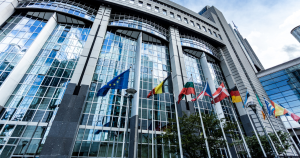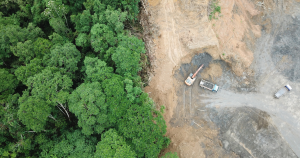Gianluca Eramo*, New York,
Almost one year after its birth in Tunisia, the Arab Spring has started to bring its desired changes to fruition. Egyptians went to the polls to vote for a new parliament; the previous week, Morocco was called to cast its vote under a new Constitution; and in October, Tunisians had the chance to elect, for the first time, a Constituent Assembly in internationally recognized free and fair elections. For most of those who casted their vote, this was the first time they had voted in free elections. For some, it was the first time they had voted at all, having refused to participate in previous elections that were neither free nor fair. For many, the mere fact they had been able to vote at all meant that they have won.
While these events are certainly the first firm steps in the transition toward open and democratic states, it must be noted that Islamist parties won a clear victory from Rabat to Cairo. In all three countries, groups referencing Islam take positions of moderation, pointing to Islam as a set of values, rather than a set of laws, and posit themselves as the opposite of the regimes they replace, though they remain opaque on specifics and use words that can be defined in multiple ways.
The Arab countries, spanning from the Atlantic Ocean to the warm shores of the Red Sea, have come a long way over the last nine months and, after some initial adjustments and reshuffling, have acquitted themselves well in laying the groundwork for a future based on democratic values, the rule of law and the promotion and protection of human rights. One of the first things Tunisia did immediately after the revolution was to ratify a host of international human rights treaties, not least the Rome Statute for the International Criminal Court. This is of particular significance in a region that has witnessed a slew of crimes this year alone, including war crimes and crimes against humanity: Tunisia’s ratification of the Rome ICC Statute indicates very clearly that the new Tunisia is refusing to be a haven for war criminals. With the fall of the Gaddafi regime in Libya and with renewed impetus in Syria and Yemen to rid themselves of autocratic regimes – matched by renewed crimes allegedly being committed by both the Syrian and Yemeni authorities – Tunisia’s stand against impunity is of critical importance both to safeguard the future and to give life to the principles that underpinned its revolution.
The coming twelve months will be a new test for the Middle East and North Africa. Over the coming year, newly established governments, spurring for the first time from fair and open elections, will be called to establish system of governments that respond to the impetus of the revolution and meet the needs of the people. In so doing, they will need to turn the commitment made by the interim governments into a lasting reality and they will need to do so through a process that itself promotes and protects human rights, the rule of law and democratic principles, including ensuring full participation by historically marginalised groups, including women, children and young people
The irony, in some ways, is that under the Ben Ali or Mubarak regimes, women enjoyed relatively good protection of their rights, even as many other fundamental rights were being violated. These women managed to keep t heir rights in the immediate post-revolution period, as evidenced by the recent elections, where there was an almost unprecedented requirement that men and women be equally represented in the electoral lists. Nonetheless, the fear that the electoral victories by Islamist political parties could lead to an erosion of women’s rights – and in general human rights – continues to simmer. The good news is that since the revolution began, civil society – restricted almost out of existence under the previous regimes if not linked to the government – has flourished. NGOs have played an important role in the lead-up to these elections, mobilising people and promoting their participation in public life, of which elections represent a key moment. And conducting education and awareness-raising campaigns to inform people of their rights, which is a critical part of empowering people to understand and embrace democracy. This is particularly remarkable, since not only have they had to bring new concepts and new approaches to the population, (which is never an easy task anywhere at the best of times) they have also – and at the same time – had to learn how to be civil society. They have taken to this new role with enthusiasm, buoyed by the same determination that facilitated the success of the revolution as a whole.
Shockwaves from the Arab Spring have been far-reaching, energizing diverse groups to demand social justice and human dignity, both in the MENA region and in the Western countries. Indeed, as we move toward the anniversary of the Arab Spring, there is a need in the West to start developing a different approach toward the Arab countries, one not set on “Islam versus Dictatorship” on one hand nor on “Stability versus Human Rights” on the other.
In particular, the West has to finally start supporting its closest allies in the region, those organised citizen and individuals that endured years of persecution at the hands of dictatorial regimes and oblivion at the hands of the “Westerners”. Only fully embracing the values and principles of democracy, enshrined in the national Constitutions and in the European Treaties, and supporting those brave men and woman that for the same principles faced Ben Ali’s jails and Mubarak’s torturers and carried out the Spring Revolution, Europe can assist the new democracies in the South shores of the Mediterranean to grow and thrive, and keep the flame of the Revolution alight for all those – in Syria, in Yemen, in Bahrain and Iran – who still have to fight and die for their rights.
* Gianluca Eramo is the MENA Democracy Program Coordinator and head of New York Office of No Peace Without Justice



